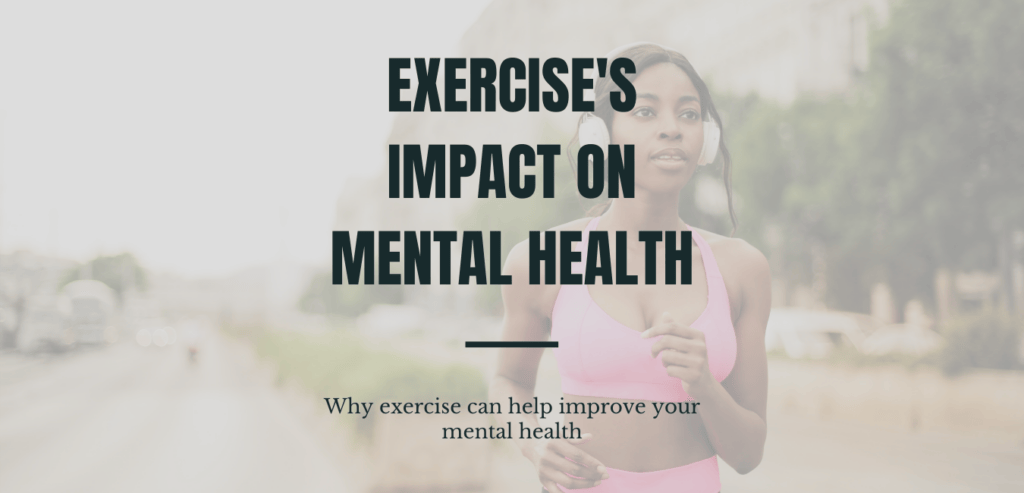Mental health disorders are a major, but lesser talked about public health problem facing our country and our world. It is estimated that depression will affect 1 in 10 Americans at some point in their life. A similar statistic is true for anxiety.
 What is one thing that can boost your mental health?
What is one thing that can boost your mental health?
Exercise! It has been proven that exercise positively impacts mental health. While exercise is not a cure all, it alleviates some of the symptoms associated with a number of mental health issues including depression, anxiety, and ADHD. But even if you don’t suffer from a mental disorder, you still have mental health– which needs to be cared for.
Below are three ways exercise can improve your mental health:
1. It relieves tension and stress
Our body is tense under stress. Your muscles may feel tight, you might have tightness in your chest, a headache, a stomach ache or any combination of these symptoms when you are under a significant amount of stress. Exercise counteracts these symptoms by releasing endorphins in the brain as well as releasing tension in muscles of the body.
2. It acts as a natural antidepressant
Exercise can serve as a distraction from depressive symptoms and it also promotes a variety of changes in our brain that help fight symptoms including:
- creating new neural pathways
- reducing inflammation,
- releasing endorphins (our “feel good chemicals”)
- promotes feelings of calmness

3. Improves concentration, motivation, memory, and self esteem.
These can help you fight depression and anxiety. And even if you don’t suffer from mental health issues, regular exercise provides these four mental health benefits.


 What is one thing that can boost your mental health?
What is one thing that can boost your mental health? 